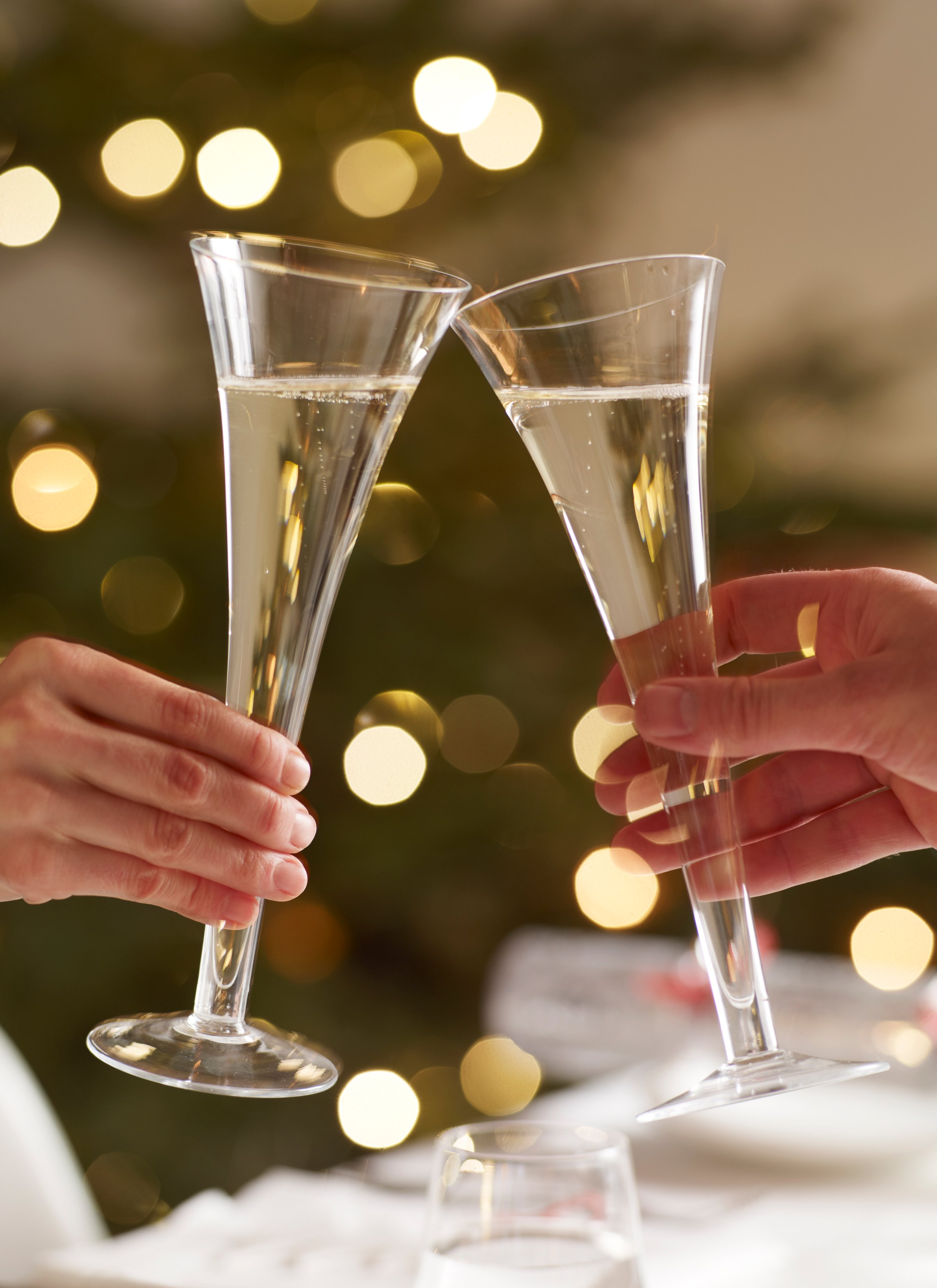
You may want to think twice before pouring that nightcap—it turns out alcohol could be wreaking major havoc on your sleep. Even though it’s the season for spiked hot cocoa, extra glasses of wine, and alcohol-fueled holiday parties, climbing into bed after downing all those drinks can leave you feeling less than jolly the next morning.
Alcohol wakes you up at night.
While knocking back a glass or two might help you fall asleep faster, going to bed with a buzz may also lead to a worse night’s sleep. Scientists reviewed 20 different studies and concluded that the tradeoff to dozing off after consuming alcohol is waking up more easily later on in the night.
It cuts into your REM sleep.
REM sleep is essential to a good night’s rest. It has a long list of benefits, including daytime alertness, improved learning, and better long-term memory, as well as allowing us to process our emotions, saysDr. Philip Gehrman, an assistant professor in the Department of Psychiatry at the University of Pennsylvania. The problem with alcohol is that it has a significant impact on REM sleep, which can hurt long-term memory and make us more irritable. “Basically, alcohol is a REM suppressant,” saysGehrman. “The more we drink, the less REM we get.”
Too many drinks can trigger heartburn.
And that uncomfortable burning sensation wake us up or keep us awake in the first place. Alcohol has been known to relax the lower esophageal sphincter, the muscle between your stomach and esophagus that’s supposed to be closed except for when you’re swallowing food. However, when you throw too many drinks into the mix, the muscle can relax and stay open for too long, causing stomach acid to come back up, which results in a burning feeling. Unfortunately, caffeine can have a similar effect, so if eliminating alcohol doesn’t decrease your heartburn, you may want to cut back on that too.
It sends you to the bathroom.
While “breaking the seal” may be a total myth, alcohol’s effect on the bladder is a real one. The fact is that consuming alcohol, a diuretic, can make you go more. Our bodies generally produce less urine at night than throughout the day, allowing us to sleep about six to eight hours without needing to visit the bathroom. However, drinking alcohol before bed can cause us to wake up in the middle of the night with the urge to go, disrupting our sleep cycle.
Alcohol and sleeping aids absolutely do not mix.
Whether you’re taking a prescription or leaning on other sleep aids, mixing them with alcohol can be harmful and sometimes downright dangerous. Both alcohol and most sleep medications target the neurotransmitter GABA, which calms our nervous activity. Because many sleep aids and alcohol target the same neural system, drinking too much can turn into a deadly combination, inhibiting parts of the brain that are necessary for survival like breathing and heart beating, Gehrman says. While many new sleep medications may not have as large of a risk, the safest bet is to never mix any kind of sleep aid with alcohol.
This article originally appeared on RealSimple.com.
Read more from Real Simple:
More Must-Reads from TIME
- Why Trump’s Message Worked on Latino Men
- What Trump’s Win Could Mean for Housing
- The 100 Must-Read Books of 2024
- Sleep Doctors Share the 1 Tip That’s Changed Their Lives
- Column: Let’s Bring Back Romance
- What It’s Like to Have Long COVID As a Kid
- FX’s Say Nothing Is the Must-Watch Political Thriller of 2024
- Merle Bombardieri Is Helping People Make the Baby Decision
Contact us at letters@time.com